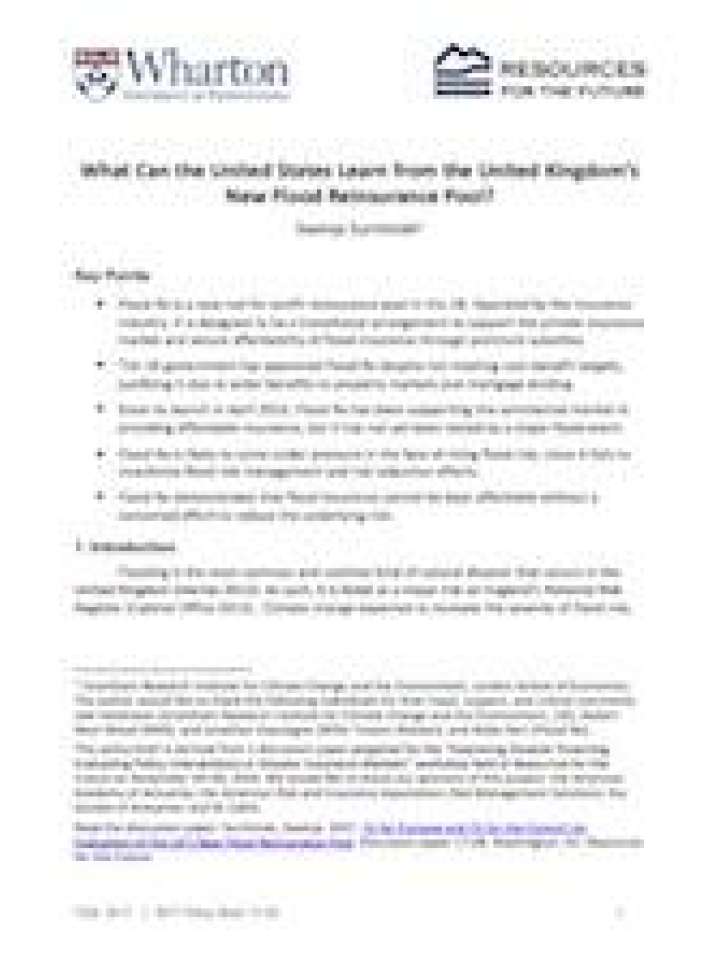What can the United States learn from the United Kingdom’s new flood reinsurance pool?
Flood Re, a non-profit reinsurance pool operated by the UK insurance industry, is designed as a temporary support measure for those high-risk properties that may face rising insurance premiums. However, it is unclear how Flood Re will achieve its objectives effectively because it offers little incentive for property owners to reduce their personal risk to flooding. This ambiguity raises questions about whether Flood Re is fit for its purpose and adequate enough for the future. There are also questions about what lessons can be drawn for governments seeking to navigate between public policy and private market solutions to address affordability and availability of flood insurance.
The key findings of this study are:
- The UK government has approved Flood Re despite not meeting cost-benefit targets, justifying it due to wider benefits to property markets and mortgage lending.
- Since its launch in April 2016, Flood Re has been supporting the commercial market in providing affordable insurance, but it has not yet been tested by a major flood event.
- Flood Re is likely to come under pressure in the face of rising flood risk, since it fails to incentivize flood risk management and risk reduction efforts.
- Flood Re demonstrates that flood insurance cannot be kept affordable without a concerted effort to reduce the underlying risk.
These findings are of relevance to the US National Flood Insurance Program, but caution is appropriate: the United States has different geography and flood risks, and its state-federal political system also has different implications. Notably, states that are net "donors" to the program might seek to opt out and establish their own flood insurance regimes.
Explore further
